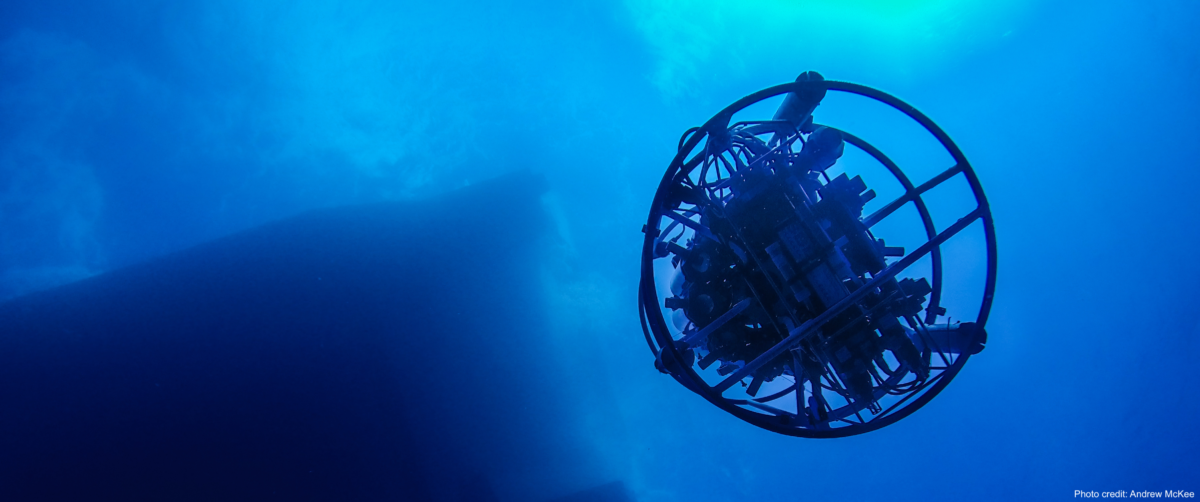21 Jan 2025 Thesis Defense Success!
Congratulations to Shara on successfully defending her MPhil thesis “Genomic and Ecological Characterization of Novel Ostreococcus Clade E and Its Associated Prasinoviruses from Hong Kong Coastal Waters.” Her research on marine picoeukaryotes and their viral interactions in Hong Kong’s coastal waters makes valuable contributions to marine microbial ecology. Well done, Shara!
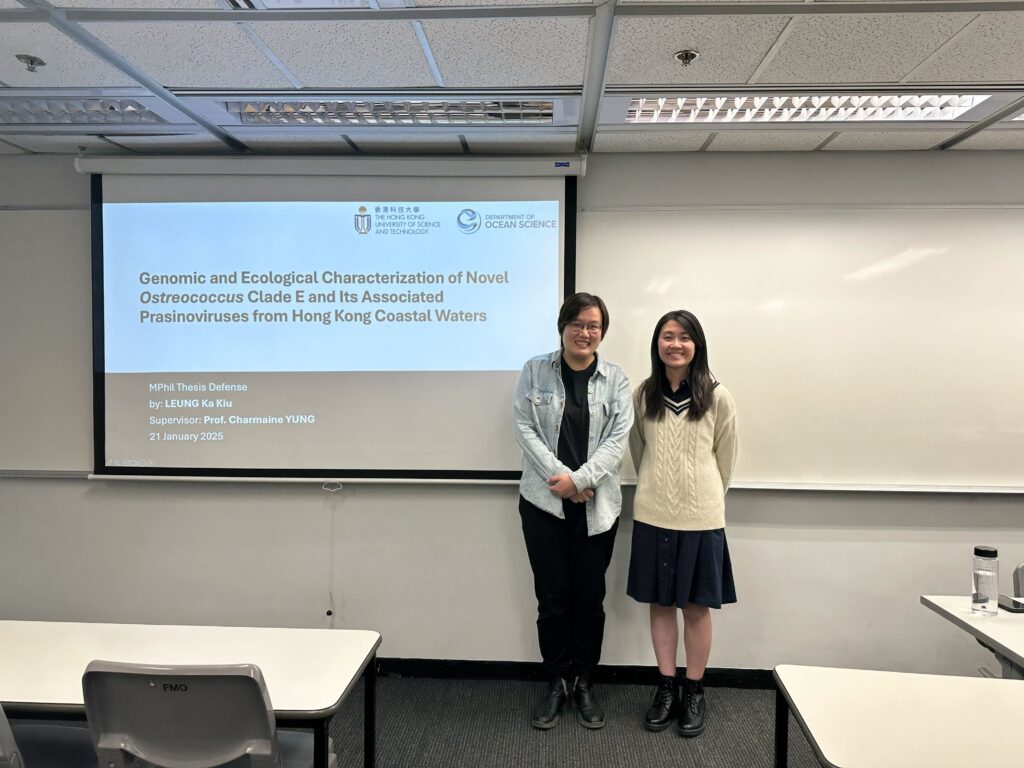
14-17 Jan 2025: Our Lab’s Success at the 2025 Xiamen Marine Sciences Symposium!
Just wrapped up an incredible week at XMAS2025 where our lab showcased our latest research. So proud of my PhD students and their outstanding presentations!
Yangbing knocked it out of the park with his talk on virus-microbe seasonal dynamics. His creative approach combining various omics approaches got lots of great questions from the audience. Wenqian gave a brilliant presentation on her eDNA work in coastal ecosystems. The visualization of multi-trophic networks was a highlight! I also shared our lab’s latest findings on eukaryotic picophytoplankton adaptation and global distribution. The discussions that followed were incredibly energizing.
Special thanks to the organizers and all the engaging questions from the audience. Great to catch up with old friends and make new connections. Already looking forward to the next symposium!
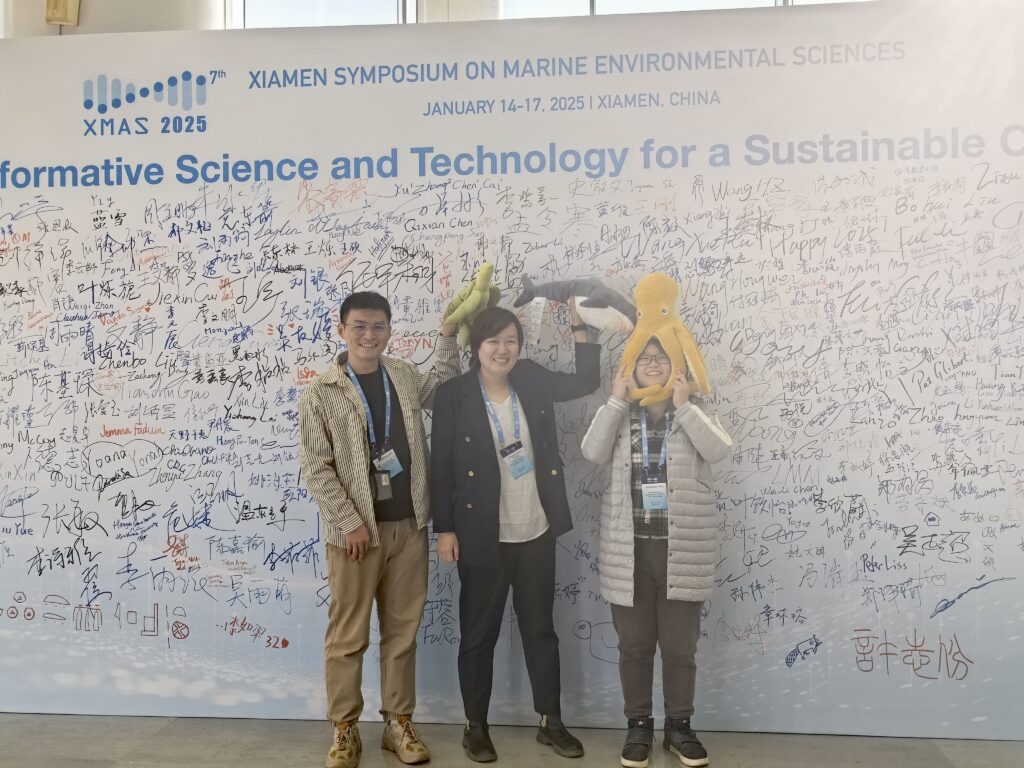
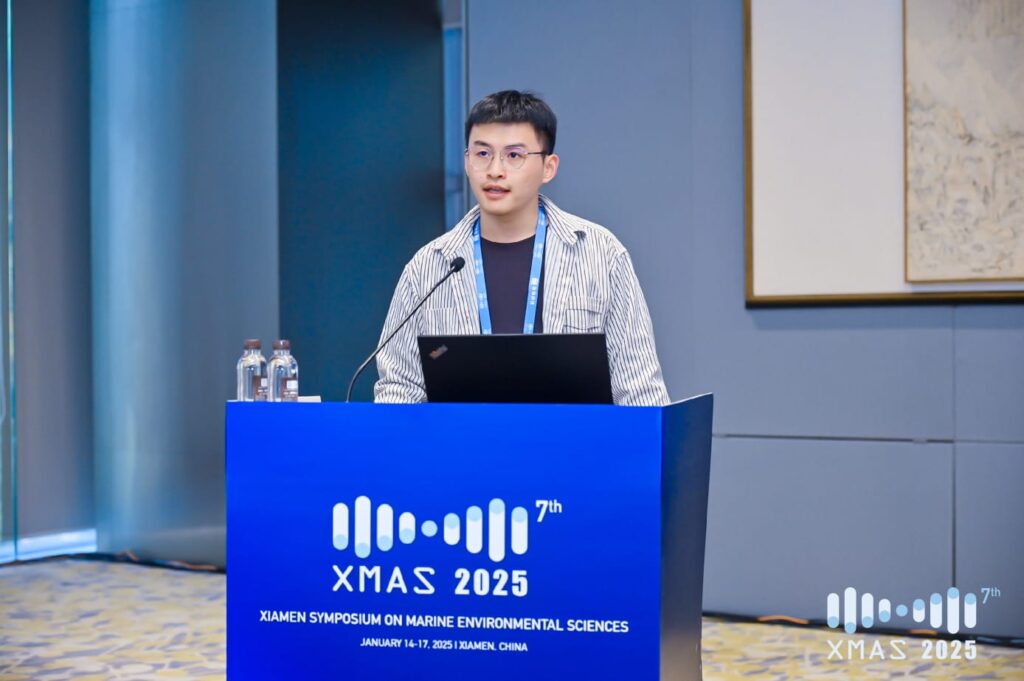
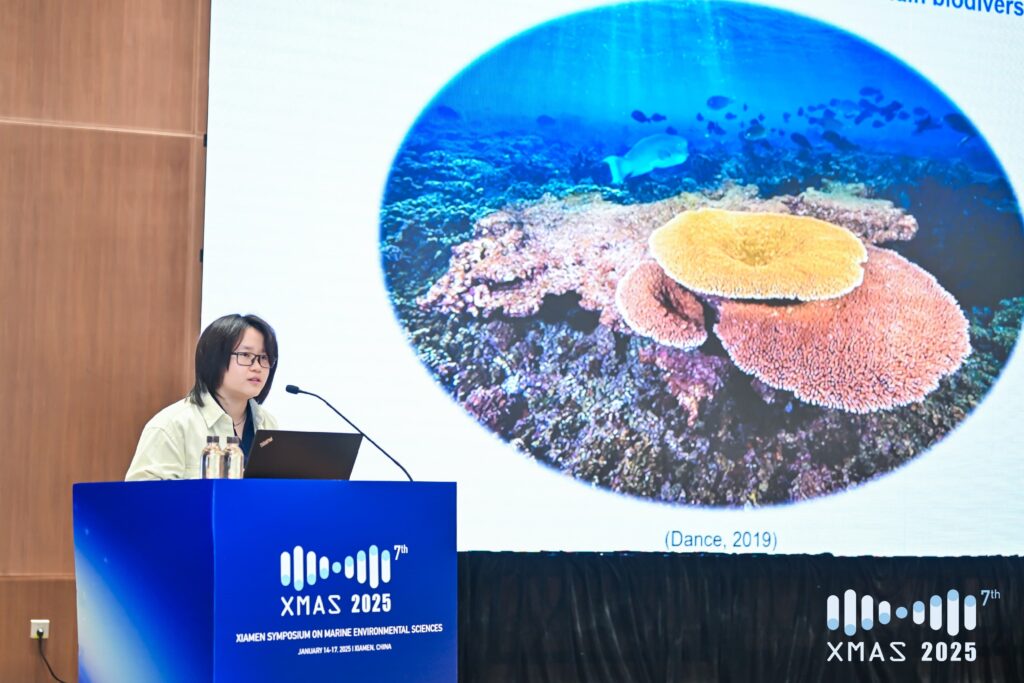
8 Jan 2025: New study reveals how microbes colonize ocean plastics (https://doi.org/10.1016/j.envpol.2024.125572)
Our research team has uncovered fascinating insights into how marine microorganisms colonize plastic debris in coastal waters. Published in Environmental Pollution, our study sheds light on the “plastisphere” – the unique microbial communities that develop on marine plastics.
Through a comprehensive 42-day experiment in Hong Kong’s coastal waters, we discovered that microbial communities on different types of plastics become increasingly similar over time, regardless of the plastic type. Using advanced DNA sequencing techniques, we simultaneously tracked bacteria, archaea, and microscopic algae, revealing complex patterns of colonization and succession.
Importantly, while communities on different plastics converge over time, they remain distinctly different from those in surrounding seawater. This confirms that plastic debris creates unique habitats in our oceans. Our analysis also suggests that these plastic-dwelling microbes develop specialized metabolic capabilities, potentially influencing nutrient cycling in marine environments.
These findings are particularly relevant for Hong Kong’s waters, where plastic pollution threatens marine biodiversity. Understanding how microbes colonize plastics could help predict the environmental impact of plastic pollution and potentially inform future bioremediation strategies.

29 Nov 2024: Celebrating a Milestone: First PhD Graduate from the Yung Lab at HKUST
Carmen Elvira Rey Redondo successfully defended her doctoral thesis on November 29, 2024, marking a historic moment as the first PhD graduate from Yung’s research group.
Dr. Rey Redondo’s thesis presents comprehensive research on microbial communities in the South China Sea’s coastal waters. Her work combines traditional culture methods with cutting-edge multi-omics approaches to characterize marine microorganisms. A particular highlight was her discovery and characterization of a new species of marine algae, Mantoniella tinhauana, and its associated virus.
Let’s raise a toast to Dr. Carmen Elvira Rey Redondo and the Yung Lab team!
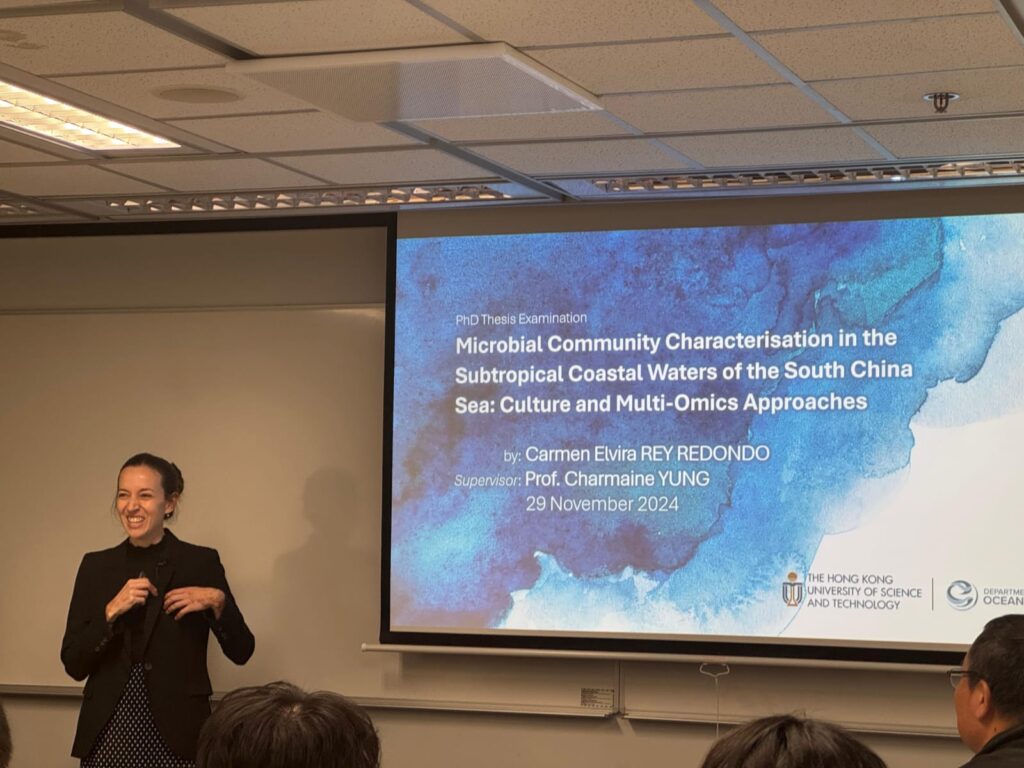
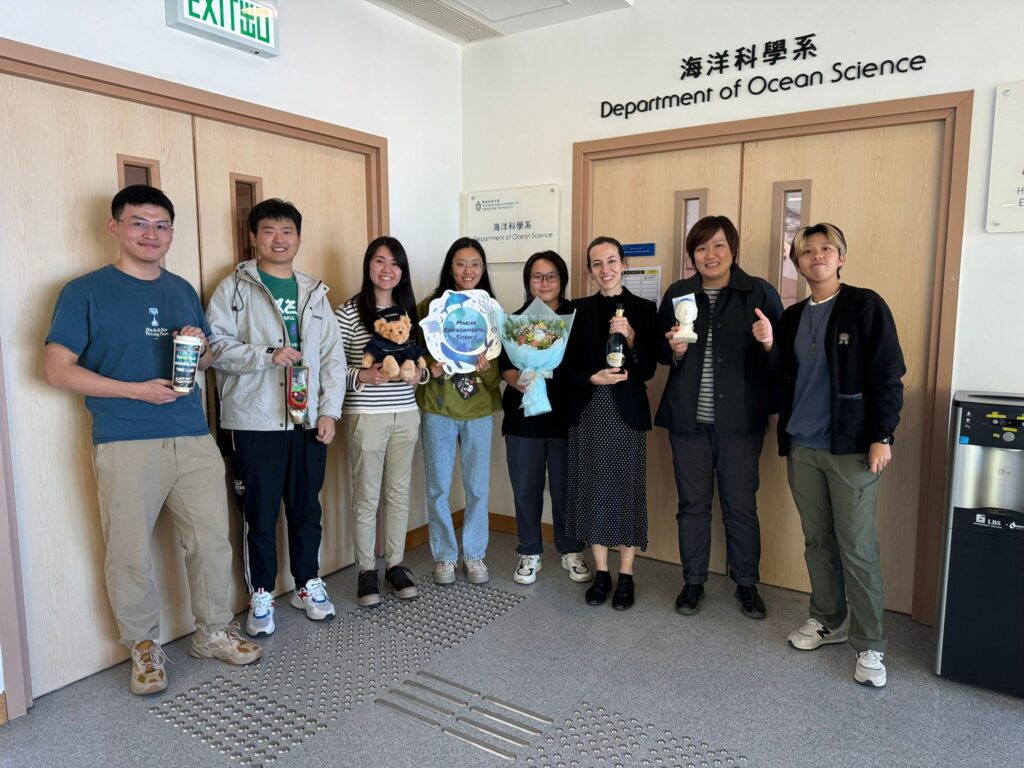
9-14 Oct 2024: Youngju Kim’s Visit from KAIST
Our lab recently hosted Youngju Kim, a promising Master’s student from KAIST. Youngju works under Dr. Jaewook Myung, Charmaine’s collarborator. During his visit, Young immersed himself in our lab’s operations, learning sampling and subculturing techniques from Susan and Shara. He engaged in stimulating discussions with Wenqian and Yijin, potentially sparking future collaborations. The visit concluded with a dinner hosted by Professor Yung, leaving a positive lasting impression.
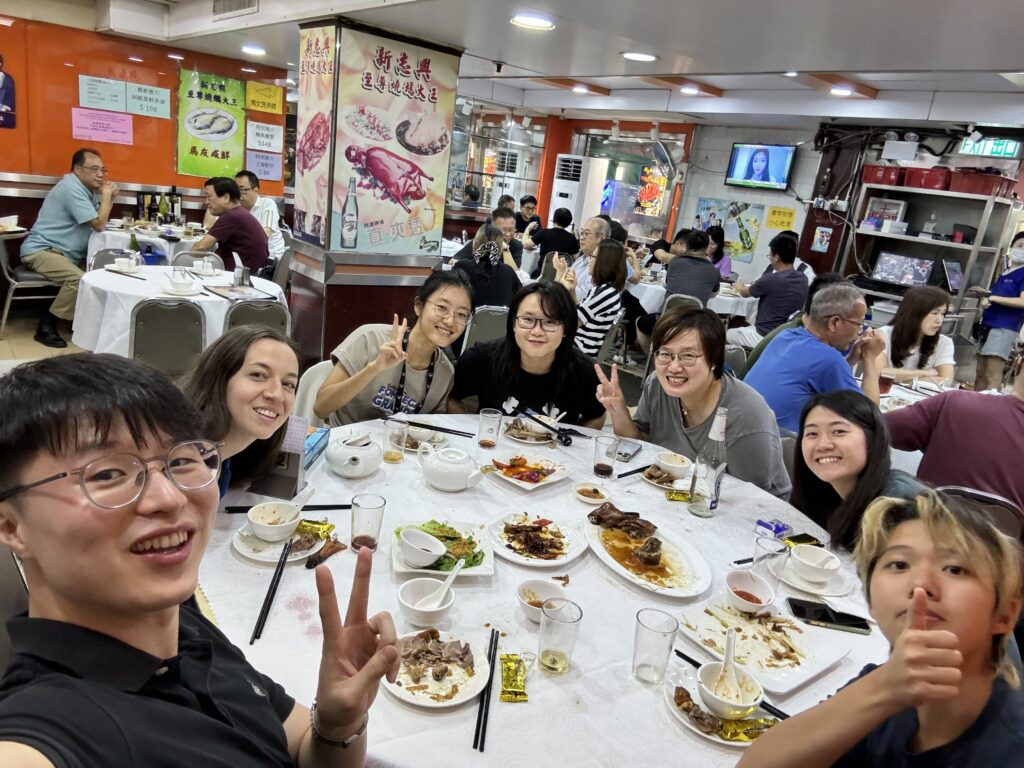
30 Sep – 5 Oct 2024: 2024 CGUE Conference on Unicellular Eukaryotes
Wenqian Xu and Yangbing Xu recently showcased their cutting-edge research at the 2024 Conference on Genomics of Unicellular Eukaryotes (CGUE). Wenqian Xu’s poster, titled “Genome-Resolved Insight into the Diversity and Function of Small Marine Protists in Subtropical Waters,” offered a deep dive into the complex ecosystem of microscopic marine life. Her research utilizes advanced genomic techniques to unravel the mysteries of these tiny yet crucial organisms that play a vital role in oceanic food webs and global carbon cycling. Yangbing Xu’s presentation, “Reconstruction of eukaryotic genomes reveals the diversification and adaptation of cosmopolitan picophytoplankton Mamiellales,” focused on a specific group of widespread marine algae. By reconstructing their genomes, Yangbing’s work provides valuable insights into how these organisms have adapted to various marine environments across the globe. The conference served as an exceptional networking platform for these young researchers. They had the opportunity to engage with leading figures in the field, including Dr. Alex Worden, a renowned marine microbiologist and the postdoctoral supervisor of Charmaine. The duo also connected with Charmaine’s collaborators, Dr. Gwenael Piganeau, an expert in evolutionary genomics, and Dr. Sheree Yau, a specialist in marine viral ecology.
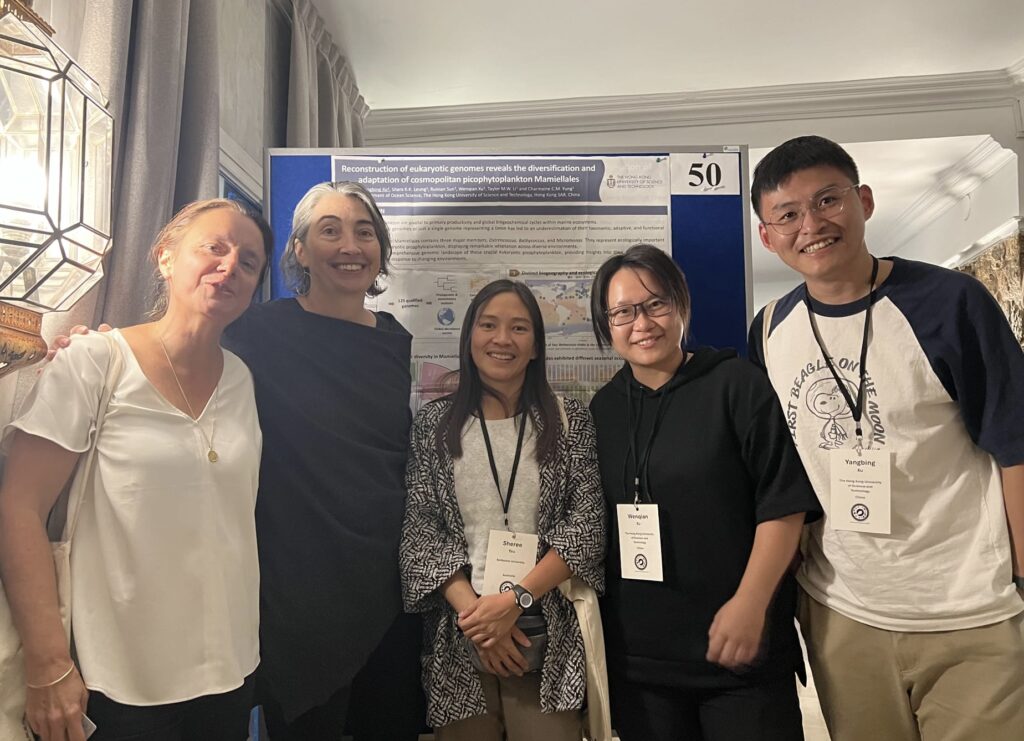
18-20 Sep 2024: The 14th Asian Symposium of Microbial Ecology, Taipei
The 14th Asian Symposium of Microbial Ecology (ASME) convened from September 18-20, 2024, at the prestigious Environmental Research Building of National Taiwan University in Taipei. This event brought together leading researchers and experts in the field of microbial ecology from across Asia and beyond. One of the standout sessions of the symposium was the Eukaryotic Microbiome session, which featured cutting-edge research on eukaryotic microbes and their ecological roles. Charmaine shared her groundbreaking work on niche partitioning in the cosmopolitan eukaryotic picophytoplankton genus Bathycoccus.
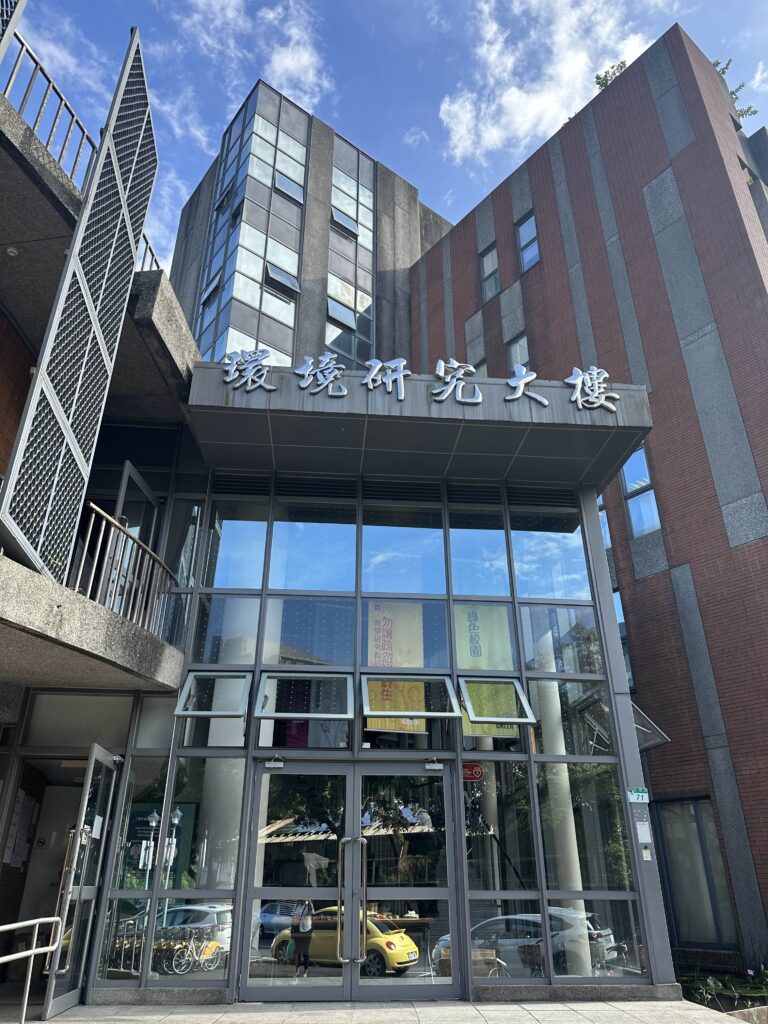
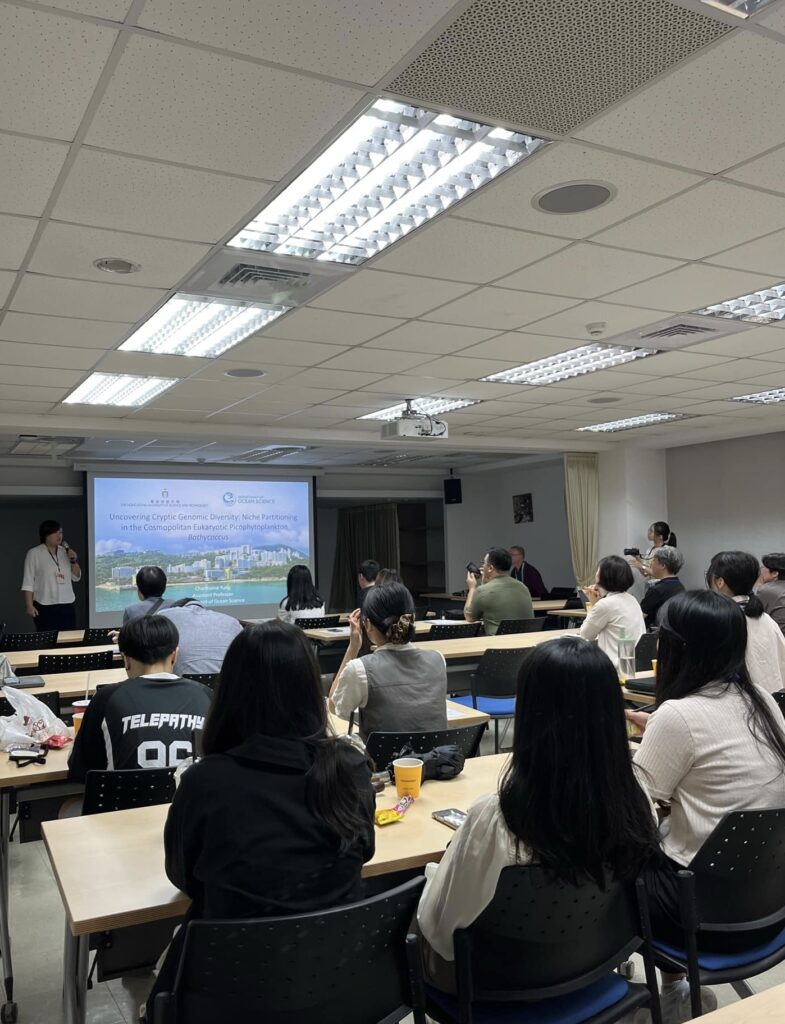
9 Sep 2024: New Study Reveals Microbial Dynamics in Coastal South China Sea
We’re proud to announce that Wenqian Xu from our research group has published a paper in Science of the Total Environment. The study, “Revealing the intricate temporal dynamics and adaptive responses of prokaryotic and eukaryotic microbes in the coastal South China Sea,” offers new insights into marine microbial communities.
Wenqian’s two-year study combined metagenomics and metatranscriptomics to explore how microbial communities adapt to environmental changes. The research uncovered seasonal shifts in microbial composition and analyzed 37 phytoplankton metagenome-assembled genomes.
Congratulations to Wenqian and the team on this significant contribution to marine microbiology!
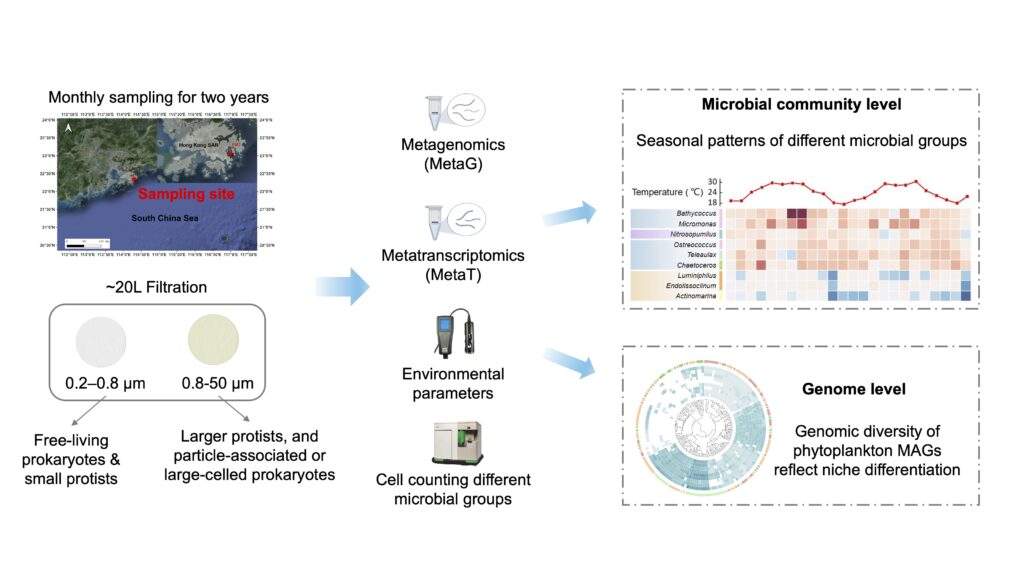
2 Sep 2024: Prasinovirus diversity in the South China Sea
A collaborative study between researchers from Yung lab and the GENOPHY group at the Observatoire Océanologique de Banyuls has been accepted for publication in ISME Communications. The paper, titled “Unveiling Prasinovirus diversity and host specificity through targeted enrichment in the South China Sea,” sheds new light on the complex relationships between prasinoviruses and their algal hosts in marine ecosystems (https://doi.org/10.1093/ismeco/ycae109).
Using an innovative virus enrichment and sequencing method, our team successfully assembled 80 prasinovirus genomes from samples collected in the South China Sea. This research provides the first direct estimation of genome similarity correlating to host range with 94% accuracy.
Some key findings include:
- Unexpected host-switching across diverse algal lineages
- Detection of horizontal gene transfer between viruses and hosts
- Evidence of ongoing coevolutionary dynamics through diversifying selection on viral proteins
This work not only expands our understanding of prasinovirus genomic diversity but also highlights the intricate evolutionary mechanisms shaping virus-host interactions in marine environments.
Congratulations to all the authors on this significant contribution to the field of marine microbial ecology!

26 Aug 2024: Congratulations, Ruixian!
We are delighted to announce that Ruixian has successfully defended her MPhil thesis titled ‘Unveiling Virus-Host Interactions in the Dynamic Marine Ecosystem of the Pearl River Estuary.’ Her research involved a comprehensive metagenomic analysis of samples, examining prokaryotes, eukaryotes, and viruses. Ruixian also made significant strides in predicting virus-host interactions based on genetic data. We eagerly anticipate the publication of her findings in a peer-reviewed journal. Ruixian’s academic journey doesn’t end here – she will be continuing her studies as a PhD student in the Yung Lab. We have every confidence in her ability to make further valuable contributions to the field of marine microbiology.
Congratulations, Ruixian, on this impressive achievement. We look forward to witnessing your continued growth and success in your doctoral studies!
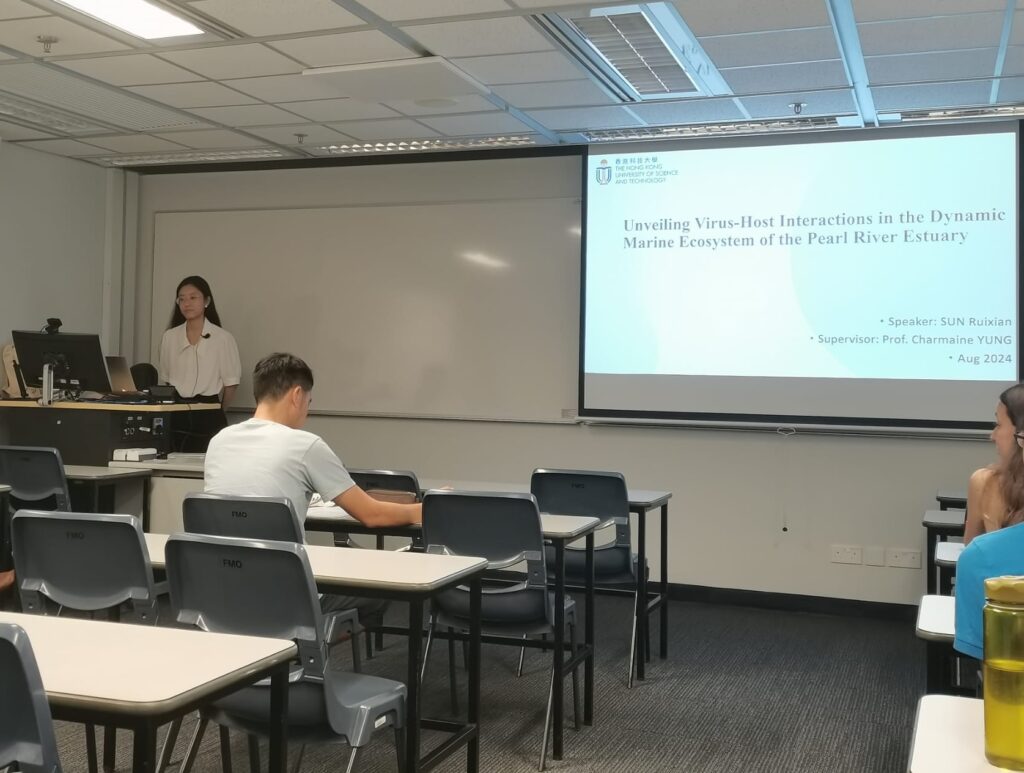
14 Aug 2024: New Study Reveals Hidden Diversity in Marine Picophytoplankton
We’re excited to announce that our manuscript “Hidden genomic diversity drives niche partitioning in a cosmopolitan eukaryotic picophytoplankton” has been published in The ISME Journal (https://doi.org/10.1093/ismejo/wrae163). Xu et al recovered and analyzed 37 genomes from the picophytoplankton genus Bathycoccus, revealing four distinct evolutionary clades with well-differentiated ecological niches and biogeographic distributions shaped by environmental factors. The study uncovered clade-specific genomic traits contributing to niche adaptation, highlighted temperature as a major driver of genome diversification, and identified potential cold-adaptation mechanisms in polar-adapted clades, providing insights into the microdiversity and adaptive evolution of this crucial marine eukaryotic phytoplankton.

8 July 2024: Invited talk at NUS, Singapore
Charmaine delivered an insightful presentation titled ‘Unraveling Virus-Phytoplankton Interactions Using Integrated Cultivation and Multi-omics Approaches’ at the School of Biological Sciences, National University of Singapore. The invitation came from Prof. Steve Pointing, Charmaine’s former MPhil advisor from her time at the University of Hong Kong (HKU).
The visit provided a valuable opportunity to reconnect with Steve and meet his talented team members, Christaline and Thirumaran. Charmaine appreciated the chance to engage with these bright minds and explore their current research endeavors. Beyond the presentation, the visit facilitated discussions on potential collaborations with NUS scientists, opening doors for future joint research projects.
The day concluded with a delightful dinner hosted by Prof. Pointing. Charmaine expressed her gratitude for both the invitation and the delicious meal, which provided a fitting end to a productive and inspiring visit.
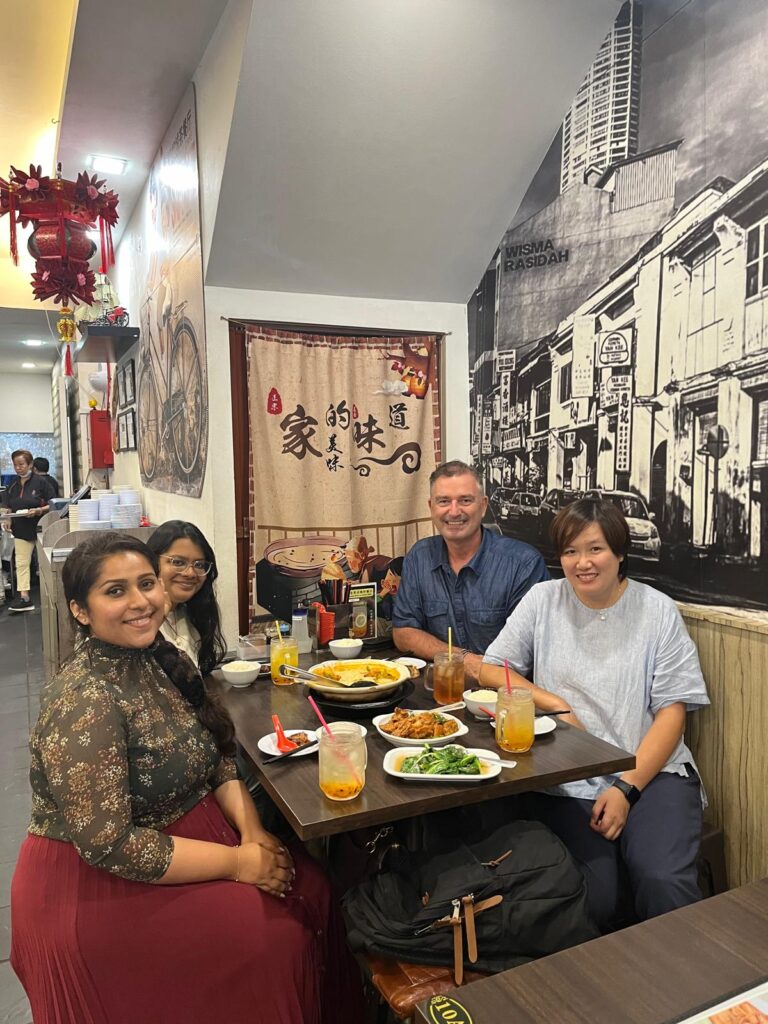
27 June 2024: International Webinar Series for Young Scholars
Yangbing delivered a compelling presentation titled ‘Exploring the Genomic Landscape: Diversity and Niche Adaptation in a Cosmopolitan Eukaryotic Picophytoplankton’ at the prestigious webinar series ‘Cutting-edge Research on Marine Science and Engineering’. This talk was part of Series II, which focused on ‘Marine Biodiversity: Adaptation, Evolution and Conservation’.
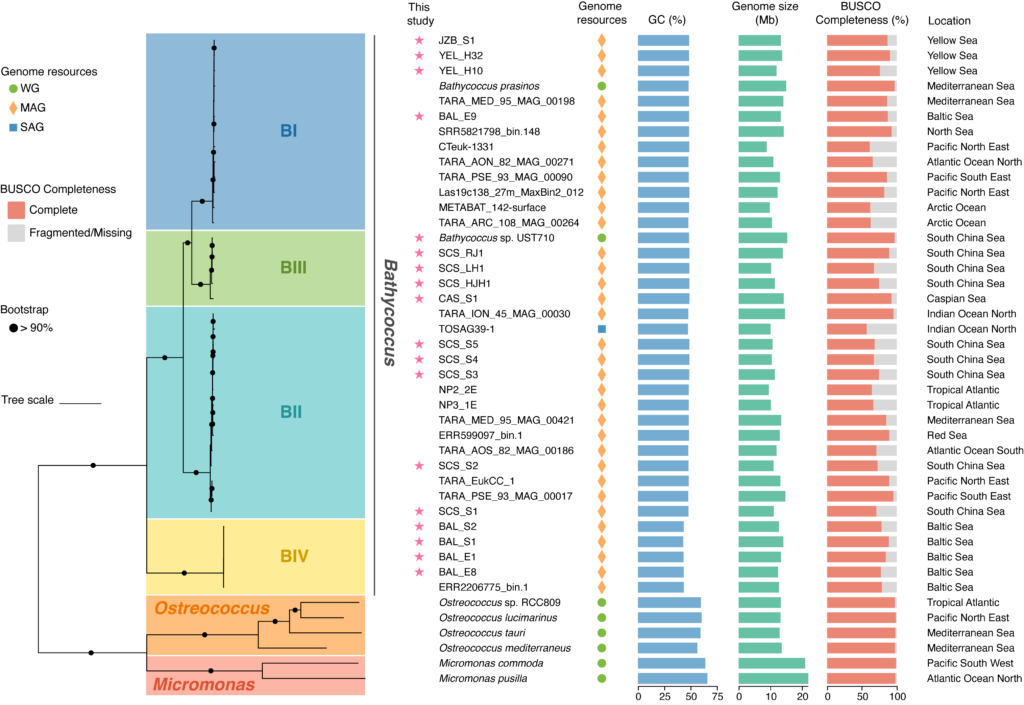
9-14 June 2024: GRC Marine Microbes 2024, Les Diablerets
Charmaine attended the Gordon Research Conference (GRC) on Marine Microbes again in Les Diablerets, Switzerland. This year, she brought along four graduate students: Yangbing, Wenqian, Ruixian, and Shara. The conference emphasized the importance of cross-disciplinary approaches in understanding the relationships between genetic composition, microbial identity, and functionality. It also explored how to scale microbial processes to the global ocean level.
In addition to networking with numerous talented scientists, Charmaine had the opportunity to reunite with her PhD advisor, Dana Hunt from Duke University. As a memorable highlight of their trip, the Yung lab embarked on an excursion to Glacier 3000, a stunning alpine attraction in the nearby Bernese Alps.
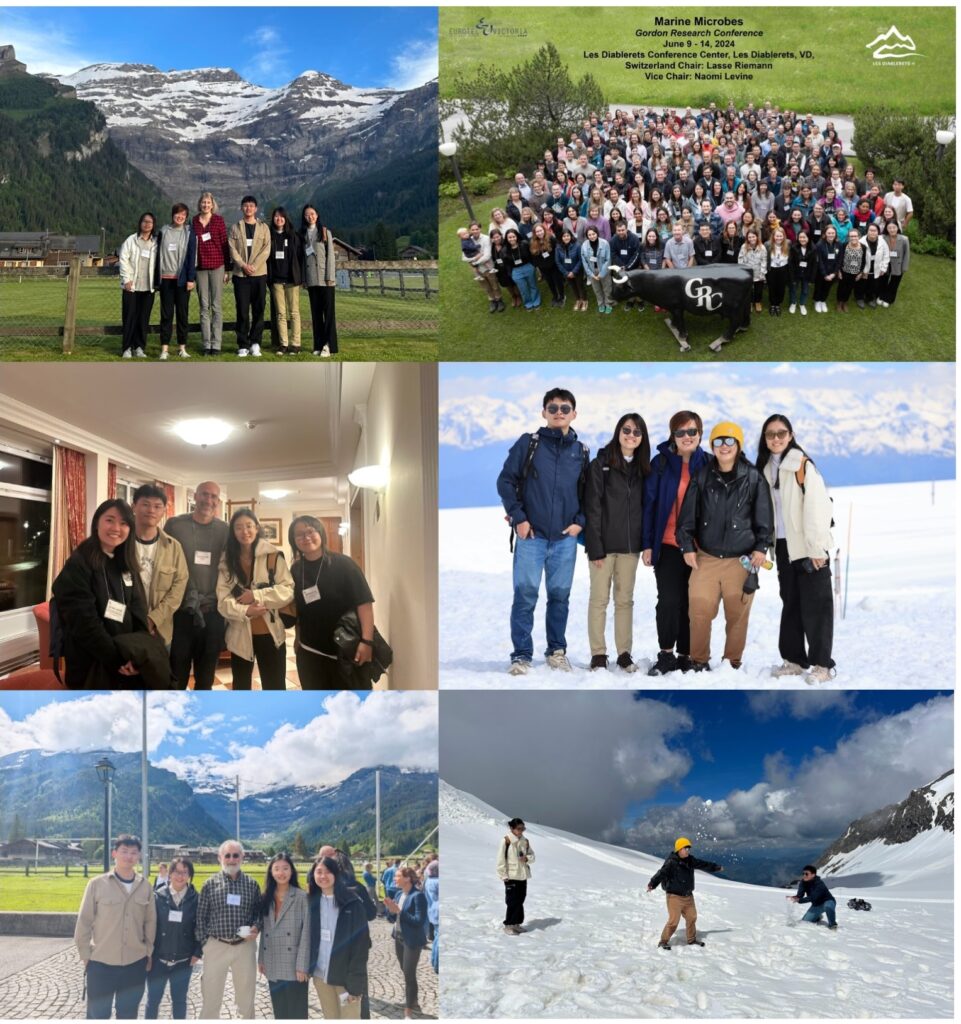
7 May 2024: Discovery of a novel Mamiellophycean green alga
We’re pleased to announce the publication of our study ‘Genomic characterisation and ecological distribution of Mantoniella tinhauana: a novel Mamiellophycean green alga from the Western Pacific’ in Frontiers in Microbiology (https://doi.org/10.3389/fmicb.2024.1358574). In this research, Rey Redondo et al. isolated and characterized a new species of Mamiellophyceae, Mantoniella tinhauana, from subtropical coastal waters in the South China Sea. We sequenced and assembled its genome for the first time, uncovering significant differences from previously studied Mamiellophyceae species. Our global metagenomic analysis revealed that M. tinhauana exhibits a cosmopolitan distribution with low-level prevalence worldwide. This study underscores the importance of understanding the intricate relationship between Mamiellophyceae and their environment, which is crucial for accurately predicting their response to future environmental changes.

30 April 2024: International Webinar Series for Young Scholars
Wenqian delivered a presentation titled ‘Taxonomic, Functional, and Genomic Dynamics of Marine Microbes in Coastal Waters of the South China Sea’ at the International Webinar Series for Young Scholars: Marine Ecosystem Dynamics and Blue Carbon Economy
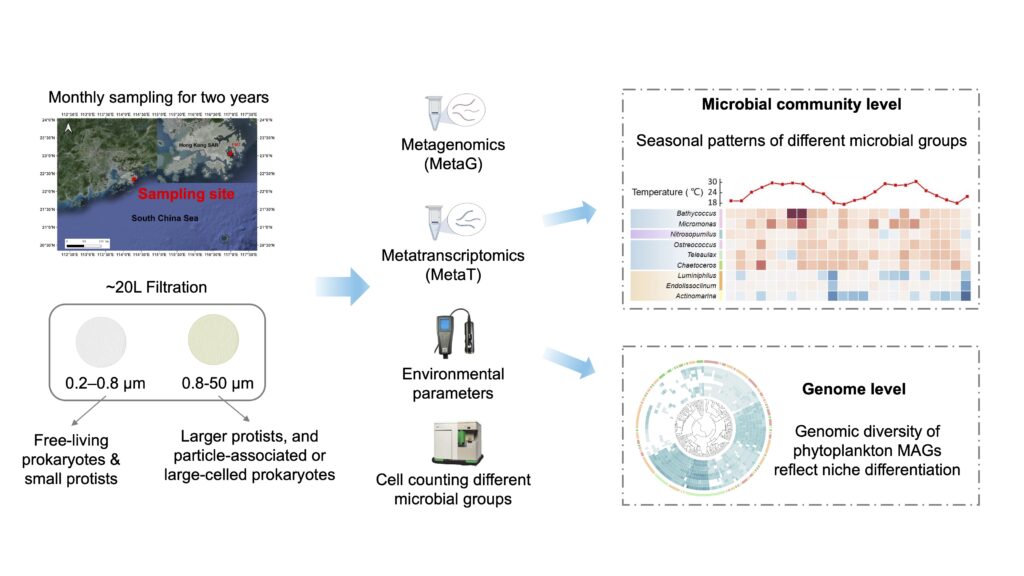
22-24 Aug 2023: Confect Symposium: 2023 Marine Microbial Virus Ecology and Evolution
Yangbing recently participated in the Confect Symposium held in Bergen, Norway. This prestigious event brought together leading experts in marine virology from around the world. During the symposium, Yangbing presented a poster titled “Unraveling virus-phytoplankton interactions using integrated cultivation and multi-omics.” His presentation showcased our lab’s innovative approach to understanding the complex relationships between viruses and phytoplankton in marine ecosystems. The event provided an excellent opportunity for Yangbing to engage with fellow researchers and discuss cutting-edge developments in the field. He had the chance to meet in person with our collaborator, Sheree Yau, further strengthening this valuable research partnership.
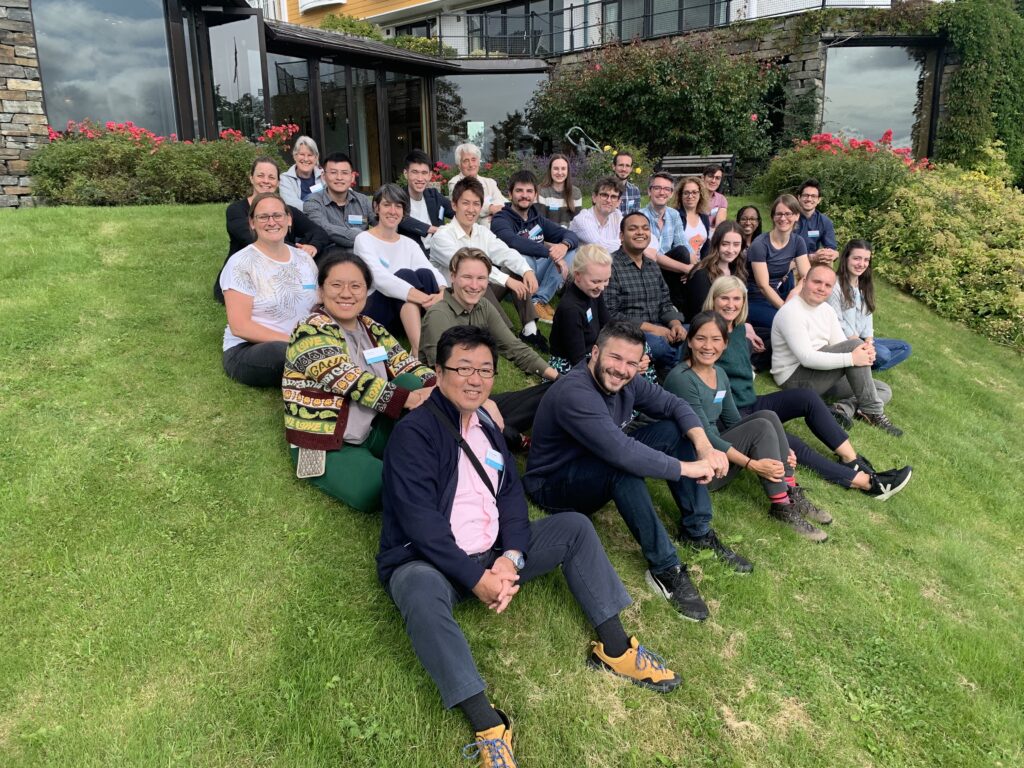
July 2023: Viruses of Microbes conference in Tbilisi, Georgia
In July 2023, Elvira and Charmaine attended the Viruses of Microbes (VoM) conference in Tbilisi, Georgia. This international event brought together researchers specializing in microbial virology. Elvira presented her research through a poster presentation, while Charmaine delivered an oral presentation in the main conference hall. Her talk highlighted our team’s cutting-edge work on green algal viruses and contributed to the broader scientific discourse. Both presentations were well-received. During their stay, the team also had the opportunity to briefly explore Tbilisi, gaining some insight into Georgia’s geography and culture.
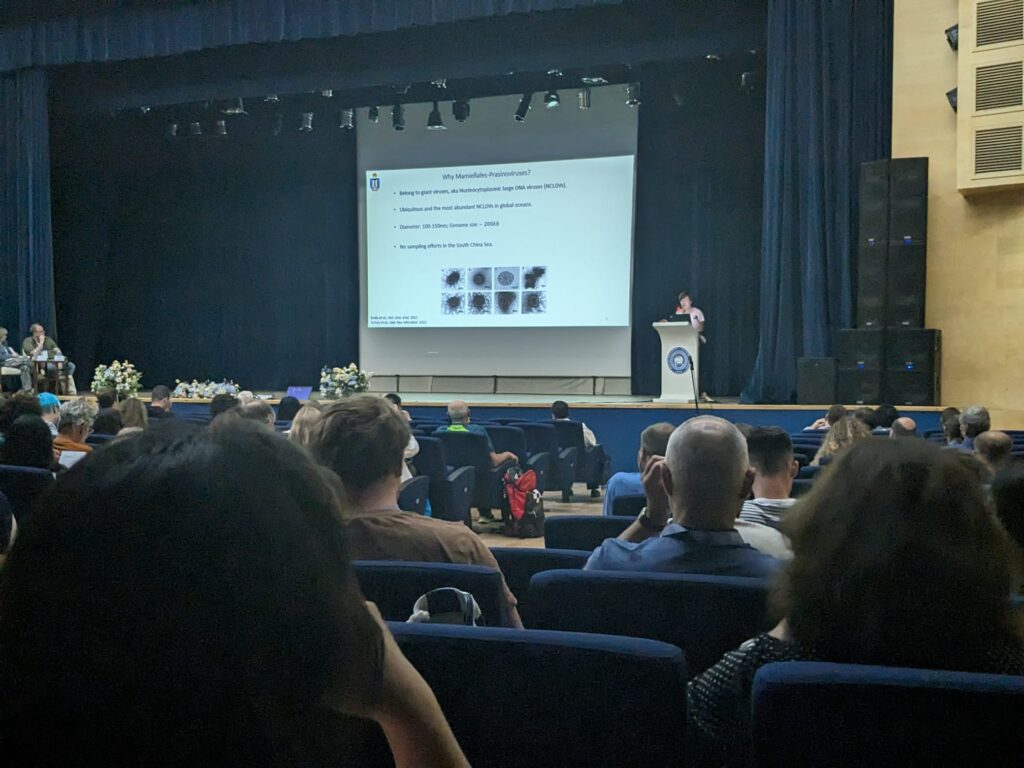
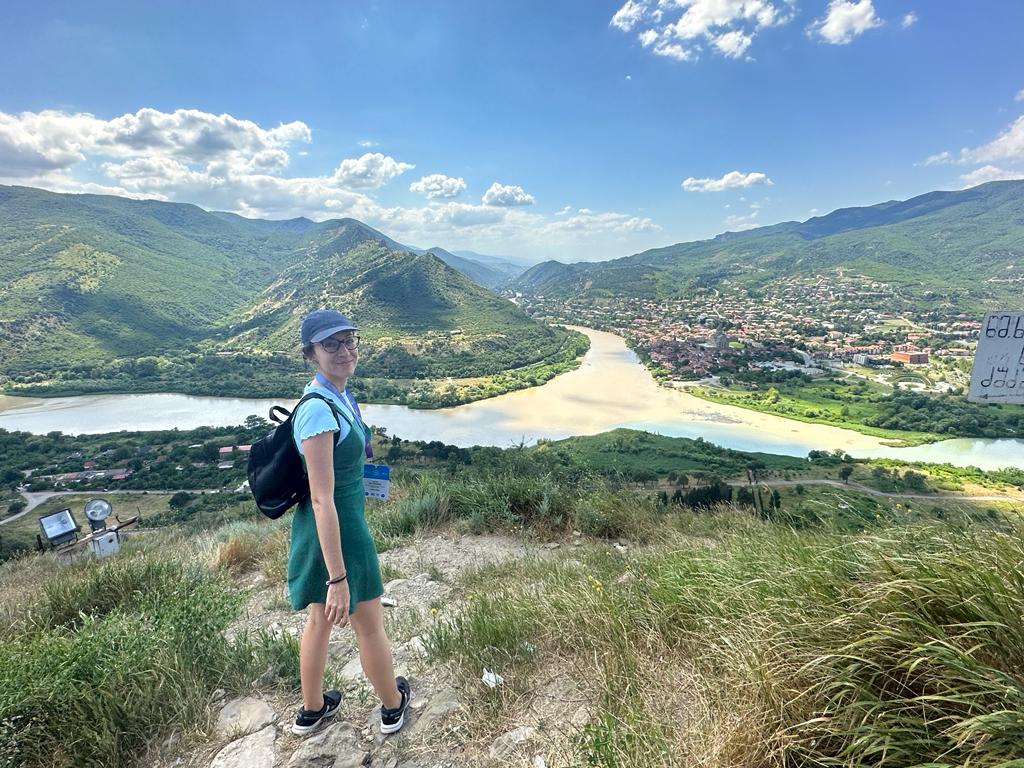
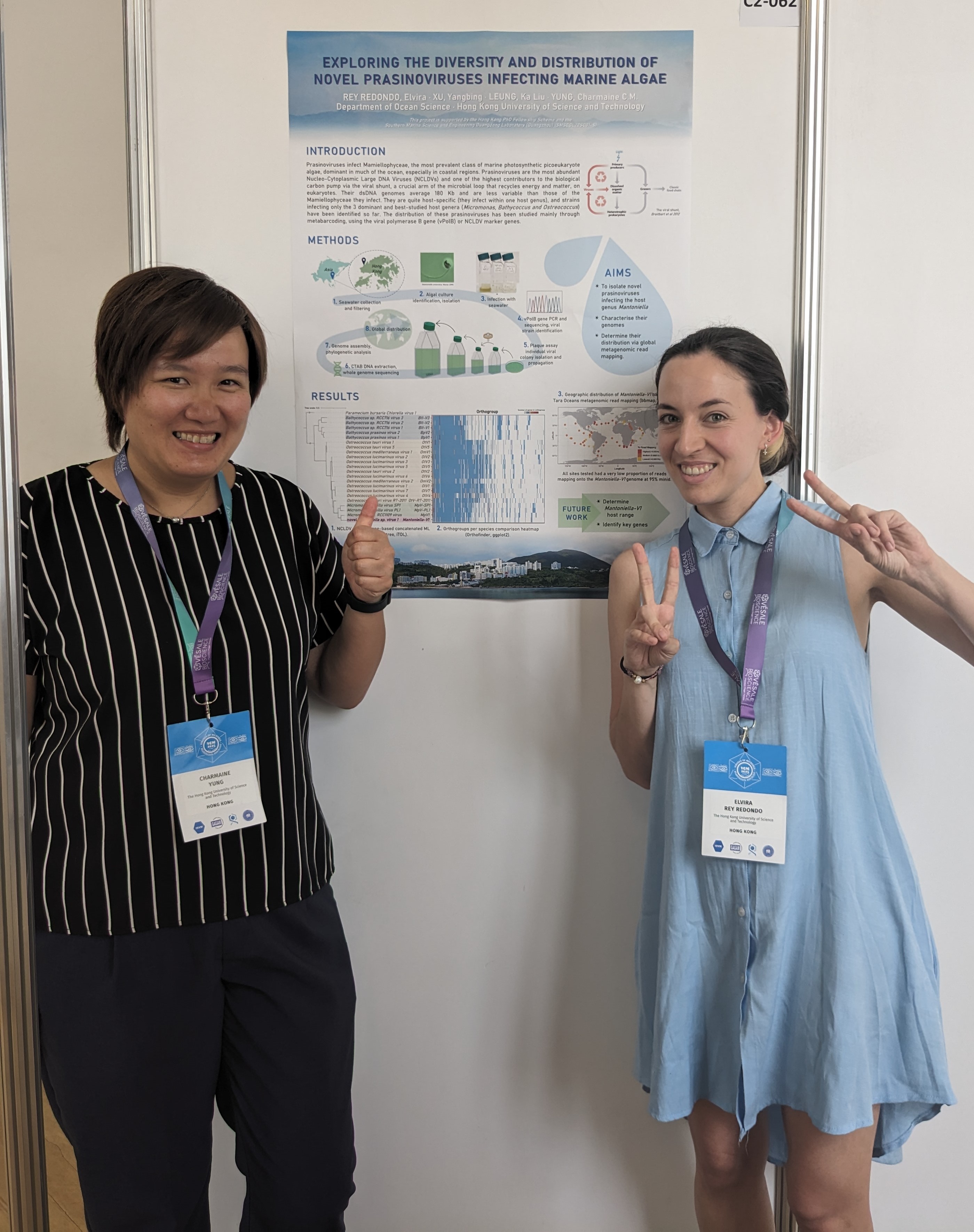
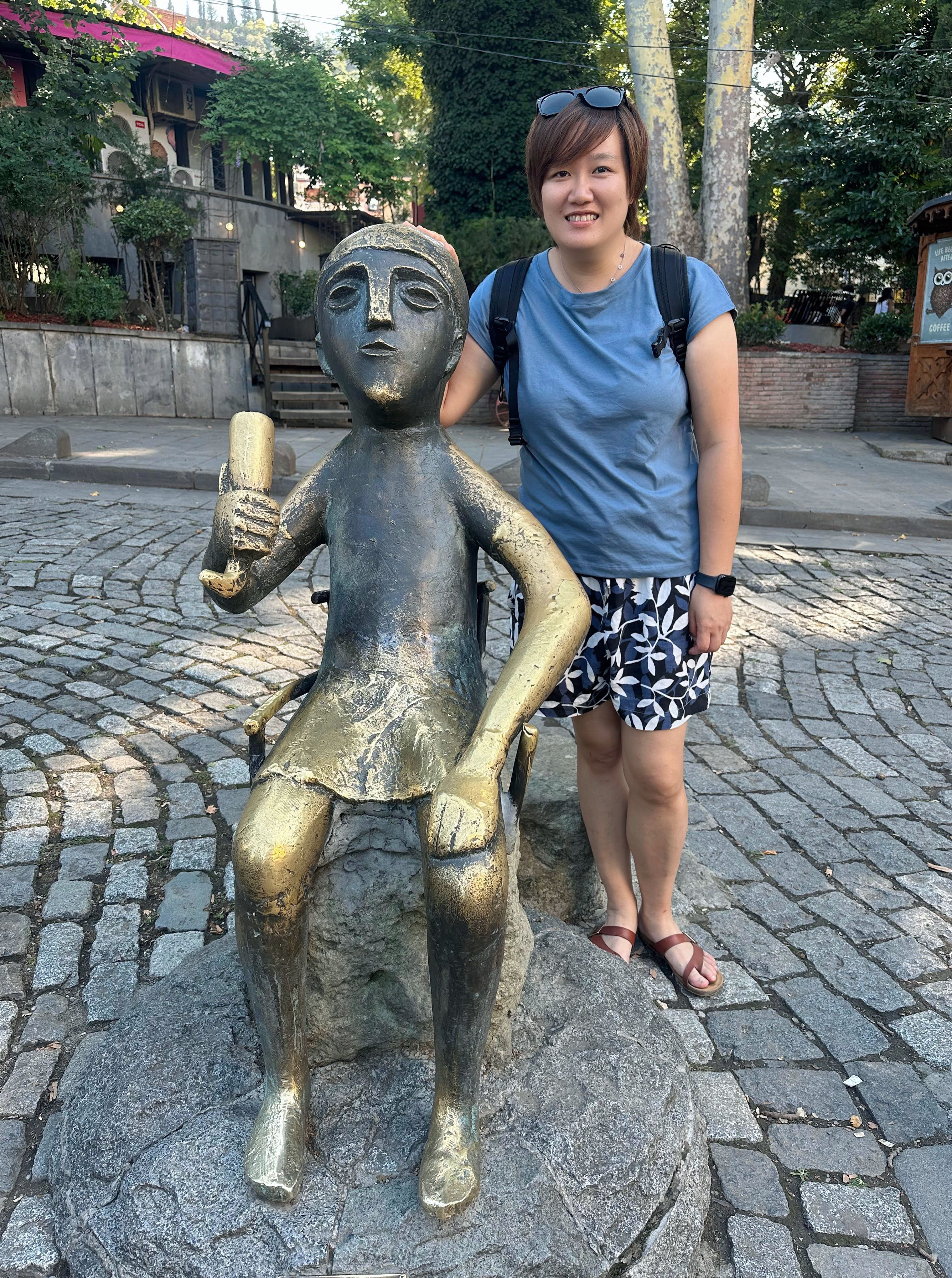
25Nov 2022: Collaborative Diving Expeditions for Coral and Fish eDNA Research
Our team has initiated an exciting collaboration with Dr. Alex Wyatt’s research group to conduct comprehensive environmental DNA (eDNA) sampling and visual surveys in Hong Kong’s coastal waters. This joint effort aims to map and analyze the distribution patterns of coral communities and fish populations in local marine ecosystems.
The project combines eDNA techniques with traditional visual survey methods, providing a multi-faceted approach to marine biodiversity assessment. These diving expeditions are meticulously planned to ensure thorough coverage of Hong Kong’s diverse marine habitats.
Wenqian, a key member of our team, has taken on the crucial role of fieldwork coordinator. Her responsibilities include organizing dive schedules, liaising with various divers and researchers, and ensuring smooth execution of the sampling protocols. This coordination is vital for maintaining consistency across multiple dive sites and maximizing the efficiency of our data collection efforts.
This collaborative research promises to yield valuable insights into Hong Kong’s marine biodiversity, potentially informing future conservation strategies and contributing to our understanding of local coral and fish ecosystems in the face of environmental changes
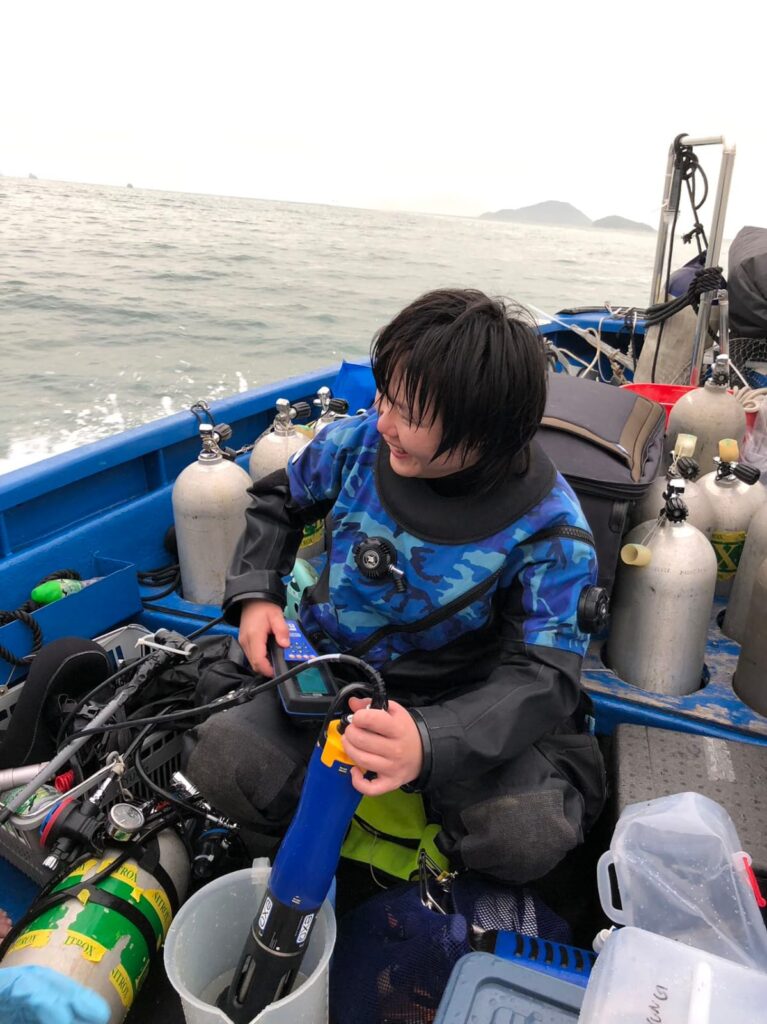
Jun-Aug 2022: Meeting the GENOPHY group
Charmaine recently visited the Observatoire Océanologique de Banyuls-sur-Mer, meeting her collaborator Gwenael in person for the first time since their partnership began in 2020. This collaboration, supported by the Hong Kong Branch of the Southern Marine Science and Engineering Guangdong Laboratory (Guangzhou), focuses on prasinovirus diversity.
During her visit, Charmaine engaged in productive discussions with Gwenael, Sheree, and Julie about their joint project. Unexpectedly, Charmaine’s brief visit turned into an extended summer stay in France, allowing for deeper research collaboration and cultural exploration.
Charmaine expressed gratitude for her colleagues’ hospitality, which made this unplanned extension both possible and enriching. This experience highlights the value of in-person interactions in fostering scientific partnerships and the unexpected opportunities that can arise from international collaborations.

29th May 2022: GRC Marine Microbes 2022
Charmaine recently attended the GRC Marine Microbes conference at the Les Diablerets Conference Center in Switzerland. Hosted by Corina Brussaard, the event brought together experts to explore the vital roles of microorganisms in various marine ecosystems from a cross-disciplinary perspective. During the conference, Charmaine took on an active role. She hosted the Power Hour Session, providing a platform for scientists to discuss career development and current issues in the field. Additionally, Charmaine paired up with Jed Fuhrman from USC to lead a discussion session titled “A Changing Ocean: Challenges to Overcome for Microbial Functional Success.
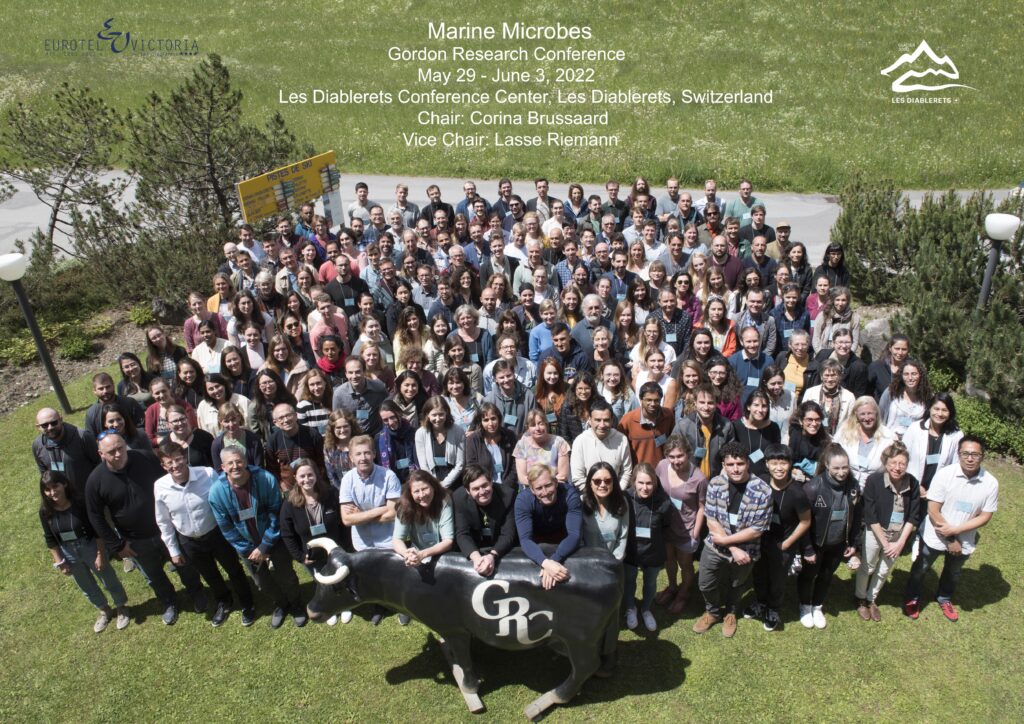
10 Feb 2022: Comprehensive Review on Mamiellophyceae Diversity and Evolution Published
A collaborative effort between the YUNG group and the GENOPHY group has resulted in a comprehensive review titled “Diversity and Evolution of Mamiellophyceae: Early-Diverging Phytoplanktonic Green Algae Containing Many Cosmopolitan Species,” published in the Journal of Marine Science and Engineering. This in-depth review synthesizes current knowledge on the diversity, ecology, and evolution of Mamiellophyceae and their associated large double-stranded DNA prasinoviruses. The authors integrate insights from cutting-edge genomic and metagenomic analyses, including data from 26 metabarcoding environmental studies and major oceanic expeditions such as the Global Ocean Sampling (GOS) and Tara Oceans. This review offers a state-of-the-art understanding of these important marine microorganisms, highlighting their global distribution and ecological significance. For those interested in marine microbial ecology, phytoplankton diversity, or algal virology, this article serves as an essential resource. The full review can be accessed at: https://doi.org/10.3390/jmse10020240.

10th Jul 2021: Canary Islands
Elvira returned to her hometown to deliver a presentation at the VIII International Symposium on Marine Sciences in Las Palmas de Gran Canaria, Spain!
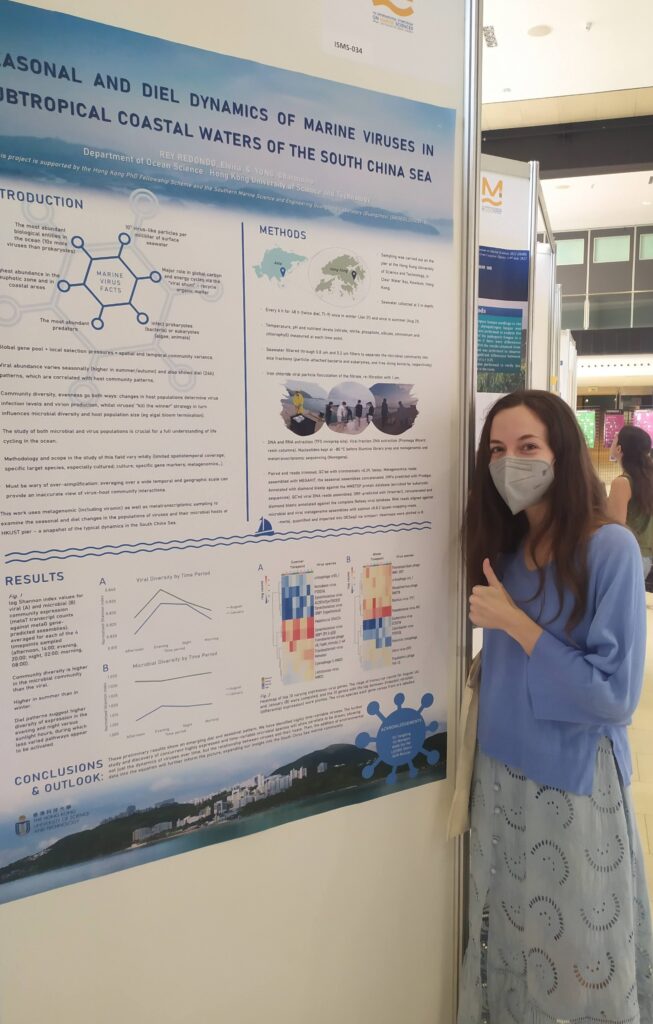
Jun 2021: Ocean Adventure: Microbe Hunters Set Sail!
From June 28th to July 10th, 2021, a team of 24 scientists embarked on an important research cruise to the Pearl River Estuary and the South China Sea. The expedition was fully supported by the Hong Kong Branch (HKB) of the Southern Marine Science and Engineering Guangdong Laboratory (Guangzhou).
The research team, comprising experts from the HKB’s area 1 and the South China Sea Institute of Oceanology, conducted extensive studies during their two-week journey. Among the dedicated researchers were Yangbing and Wenqian, who focused on an intriguing aspect of marine microbiology.
Yangbing and Wenqian’s project involved studying the diel cycle of microbial and viral communities across a range of water types, from estuarine to oceanic. This required tireless effort as they filtered numerous water samples throughout the cruise.
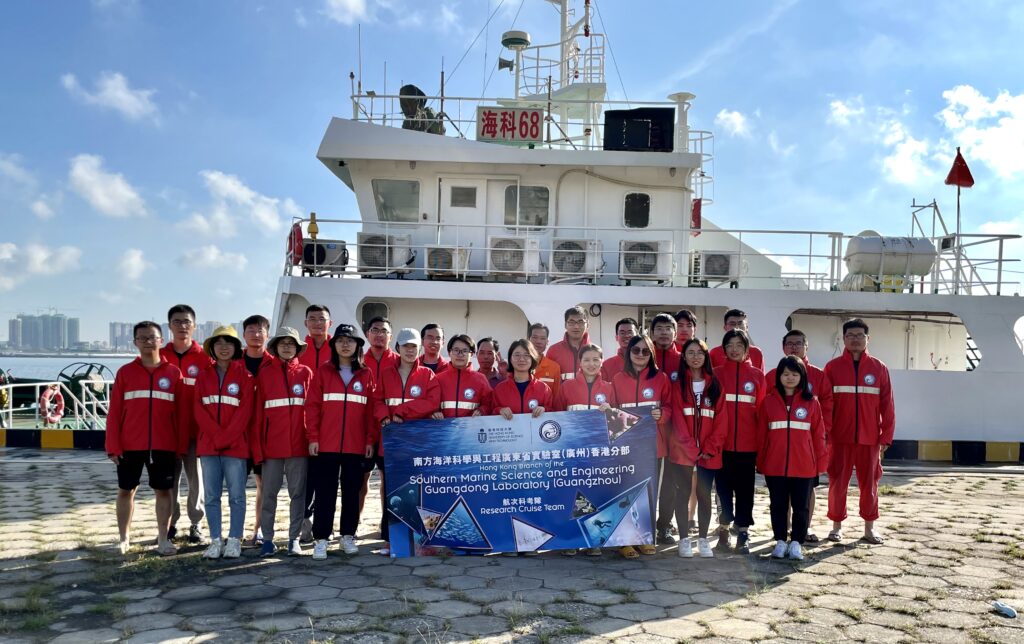
20-22 Jan 2021: Intensive Diel Sampling Reveals Temporal Dynamics of Coastal Marine Microbes
Our research team conducted a 48-hour sampling campaign to investigate the temporal dynamics of coastal marine microbial communities. The study involved collecting water samples at six-hour intervals, providing a high-resolution snapshot of microbial activity over two full day-night cycles. This sampling protocol was designed to capture the diel variations in marine prokaryotes, eukaryotes, and viruses.
Water samples were carefully filtered to isolate different microbial components, allowing for comprehensive analysis of the diverse marine microbial ecosystem. Concurrent with biological sampling, we recorded crucial physico-chemical parameters to contextualize the microbial data within the changing environmental conditions.
This intensive effort aims to shed light on the short-term fluctuations in microbial populations and their potential drivers in coastal marine environments. The resulting dataset promises to offer valuable insights into the complex interplay between marine microbes and their dynamic coastal habitat over diurnal cycles.
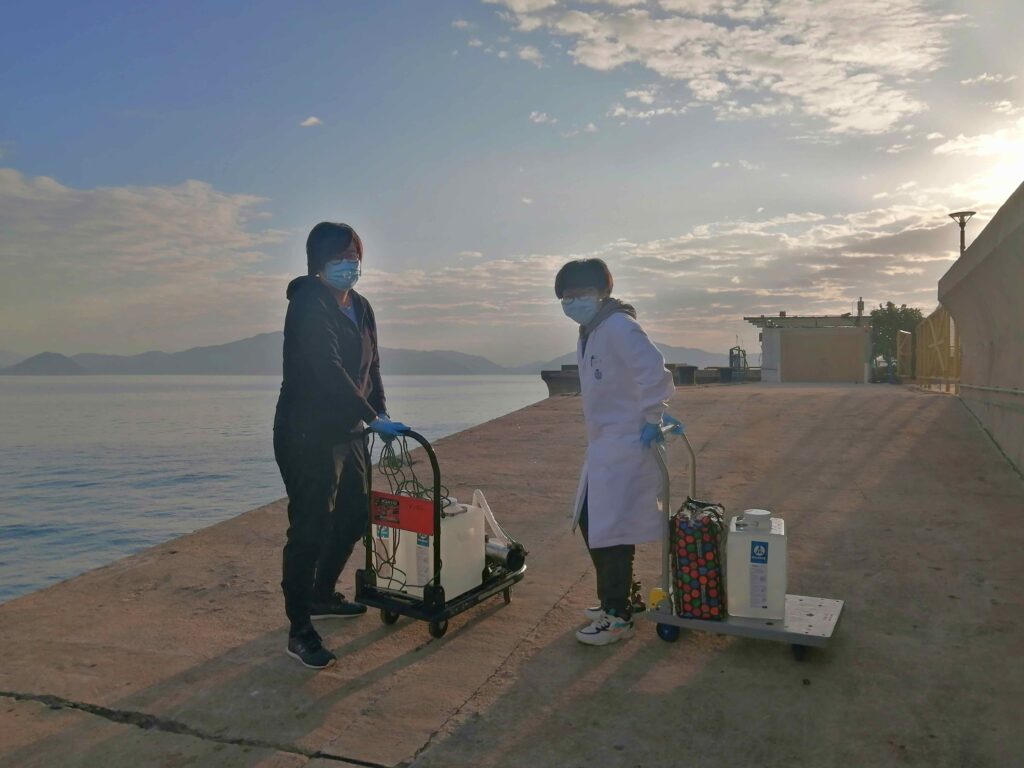
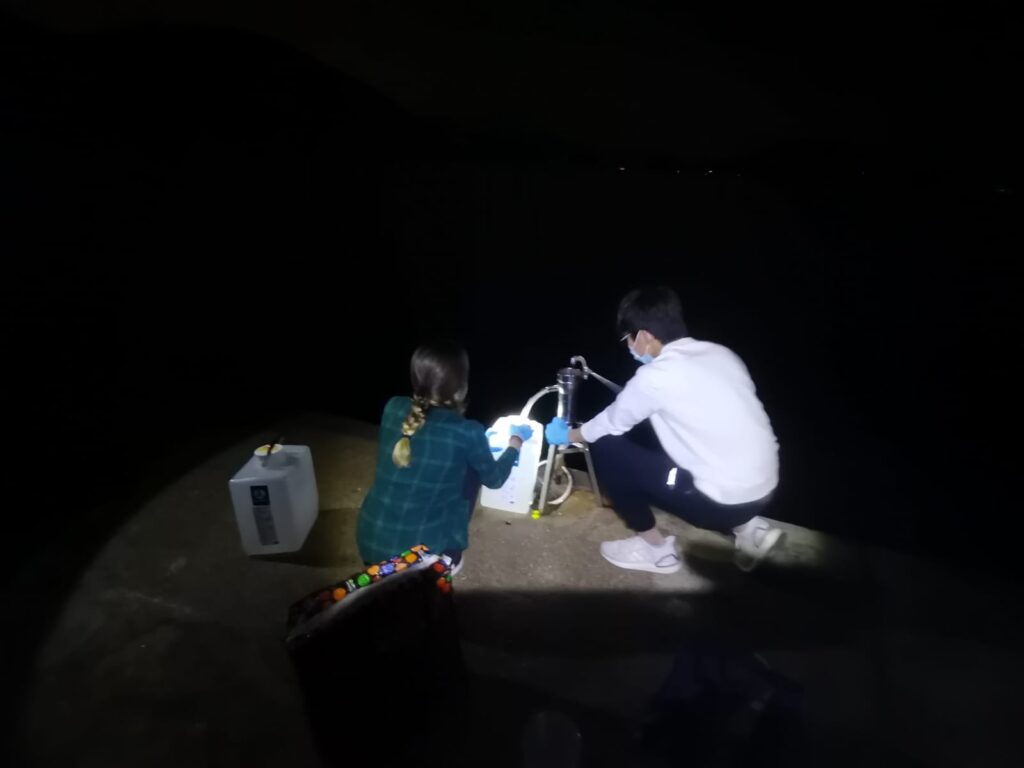
18th Sep 2019: Research cruise in Northeast Pacific
Charmaine returned to Monterey Bay Aquarium Research Insitute (MBARI) to join the Worden lab’s DVM 2019 research cruise. She performed diel sampling to explore the diversity and temporal dynamics of viral assemblages in relationship to their hosts in the mesotrophic ocean. She also helped other scientists on board, i.e. collecting DOC and click-iT samples for Dr. Kristin Bergauer (GEOMAR) and dissecting deep-sea invertebrates with UCSC PhD student Charlotte Eckmann.
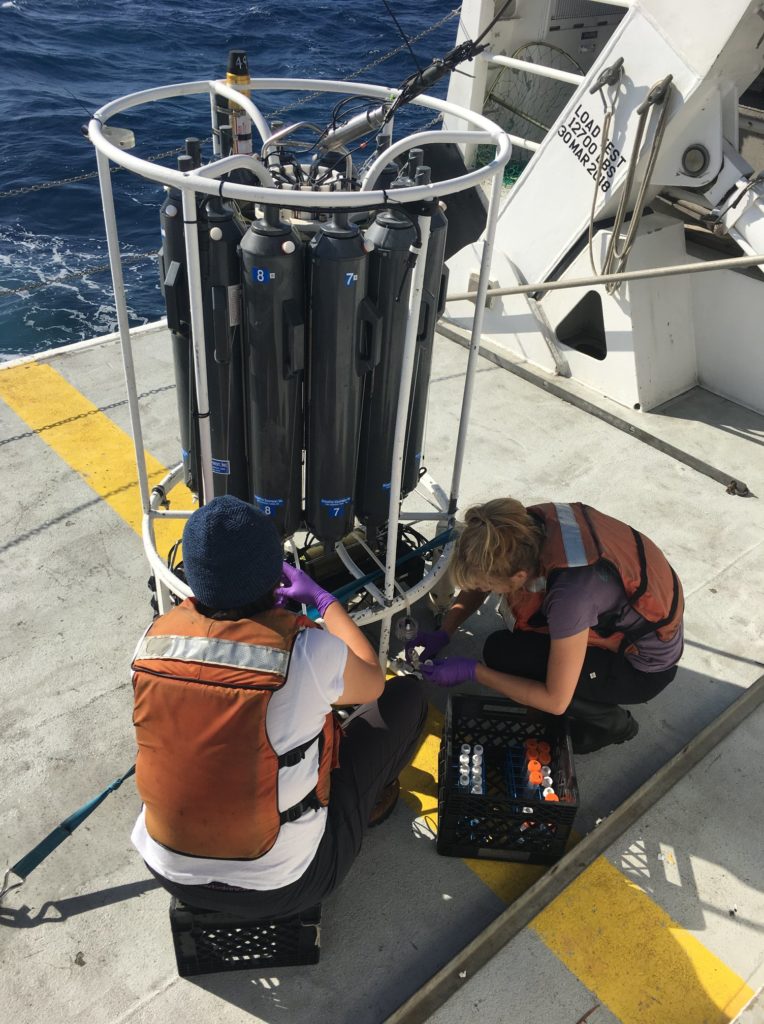
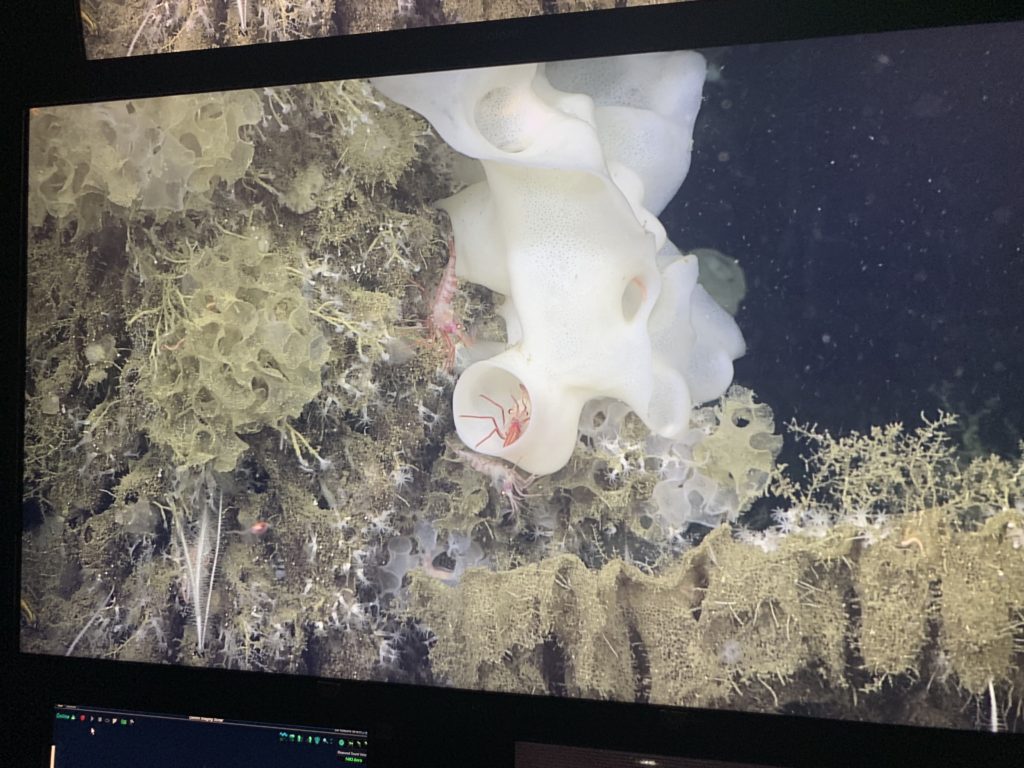
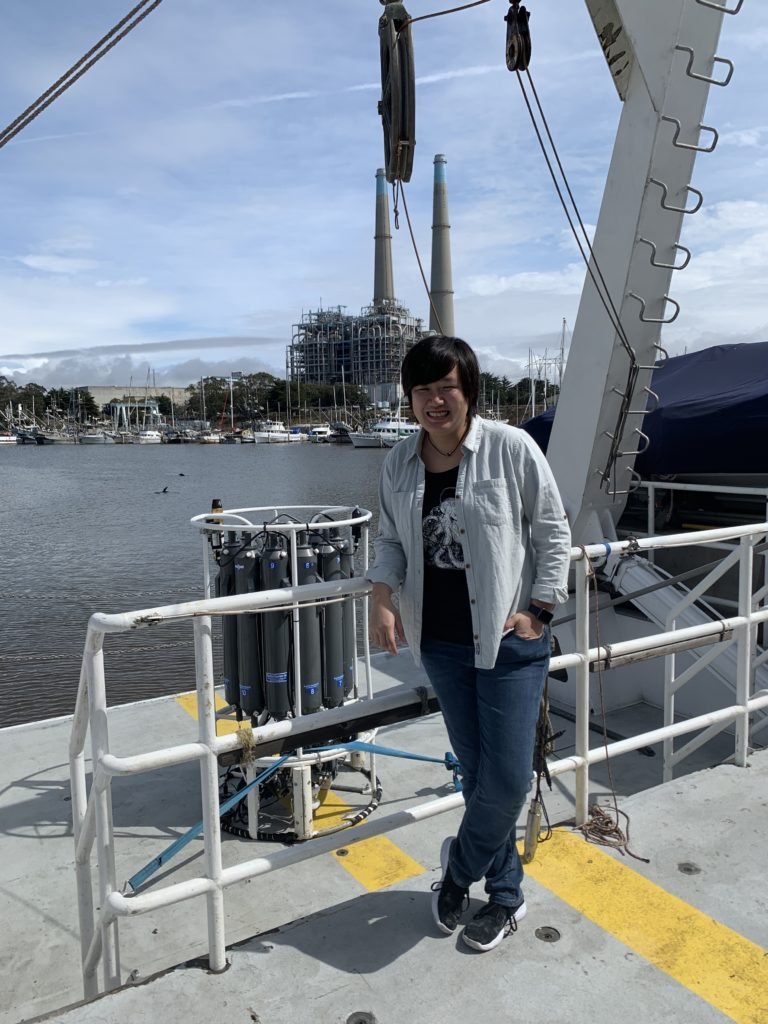
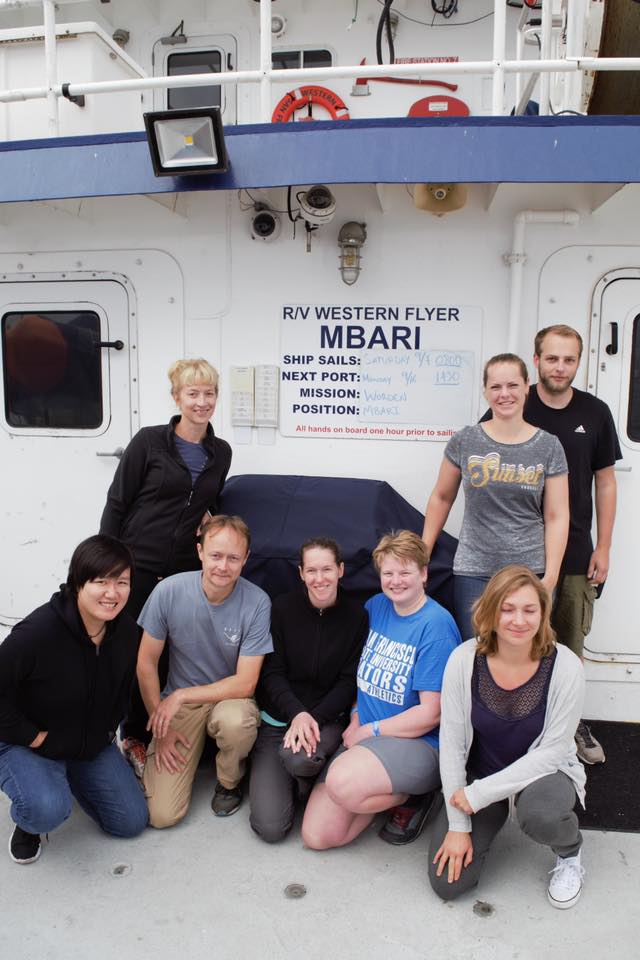
22nd Aug 2019: Funded postgraduate opportunities in microbial ecology and oceanography
Ongoing opportunities are available for Ph.D. students wishing to study the microbial ecology and oceanography, focusing on efforts to understand microbial diversity, microbial interactions, and viral impact on picophytoplankton. Successful candidates will pursue a Master’s (M.Phil.) or Doctorate (Ph.D.) in the department of Ocean Science at HKUST with Dr. Charmaine C.M. Yung.
Some potential topics to develop are:
– Temporal dynamics of picophytoplankton in Hong Kong waters
– Exploring the temporal dynamics of viruses and their potential hosts including bacteria and single-cell eukaryotes in the ocean
– Identifying green algae-virus pairs, establish model systems to study the interaction between the underlying mechanism of the infection as well as the top-down and bottom-up effect on green algae populations.
– Investigating the Vibrio population structure in different sources, including waters and oysters.
Requirements:
Applicants should demonstrate the following qualifications:
– Minimum: A bachelor’s degree in Biology, Microbiology, Bioinformatics or equivalent
– Strong interest in marine microbial ecology
– Very good written and oral communication skills in English
– Experience in basic microbiology, microbial ecology, molecular biology, and/or bioinformatics is preferred, especially DNA/RNA extraction techniques, PCR, and working with UNIX, R and/or Python is preferred.
– The ability to participate in marine fieldwork that may sometimes be physically demanding
– Field experience working in marine environments is also an asset
– Fulfill the HKUST admission requirements (https://pg.ust.hk/prospective-students/admissions/admission-requirements)
Interested applicants should e-mail to ccmyung@ust.hk including:
1. A cover letter describing your motivation, skills, and experience for this position
2. CV
3. University transcript (unofficial is fine)
Application deadline: Open until filled
Start date: 2020 Spring
20th July 2019: GRC Marine Molecular Ecology
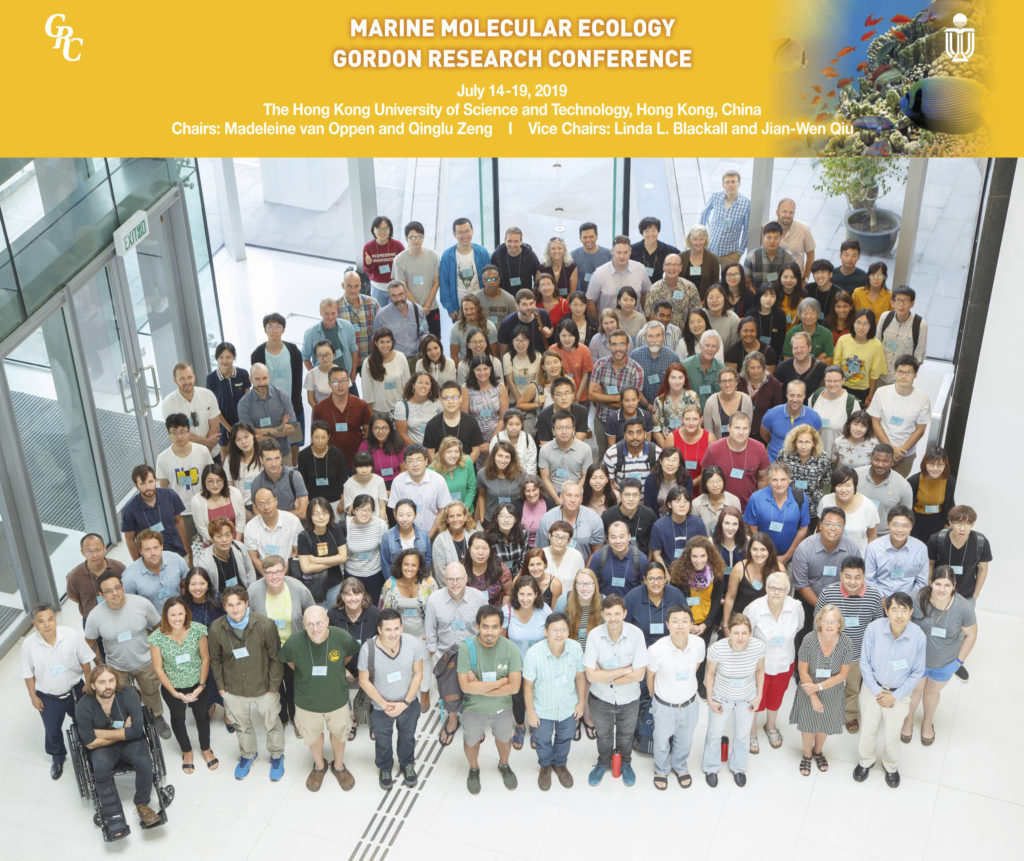
Charmaine attended the GRC Marine Molecular Ecology (MME) hosted by our own faculty Prof. Qinglu Zeng and Madeleine van Oppen from Australia. The conference covered a wide range of topics including marine viruses, microbial interactions, eDNA, and coral reefs. Charmaine was elected to be the vice-chair of the next conference held in 2021. Stay tuned for the GRC MME 2021!
2nd July 2019: Moving back to hometown
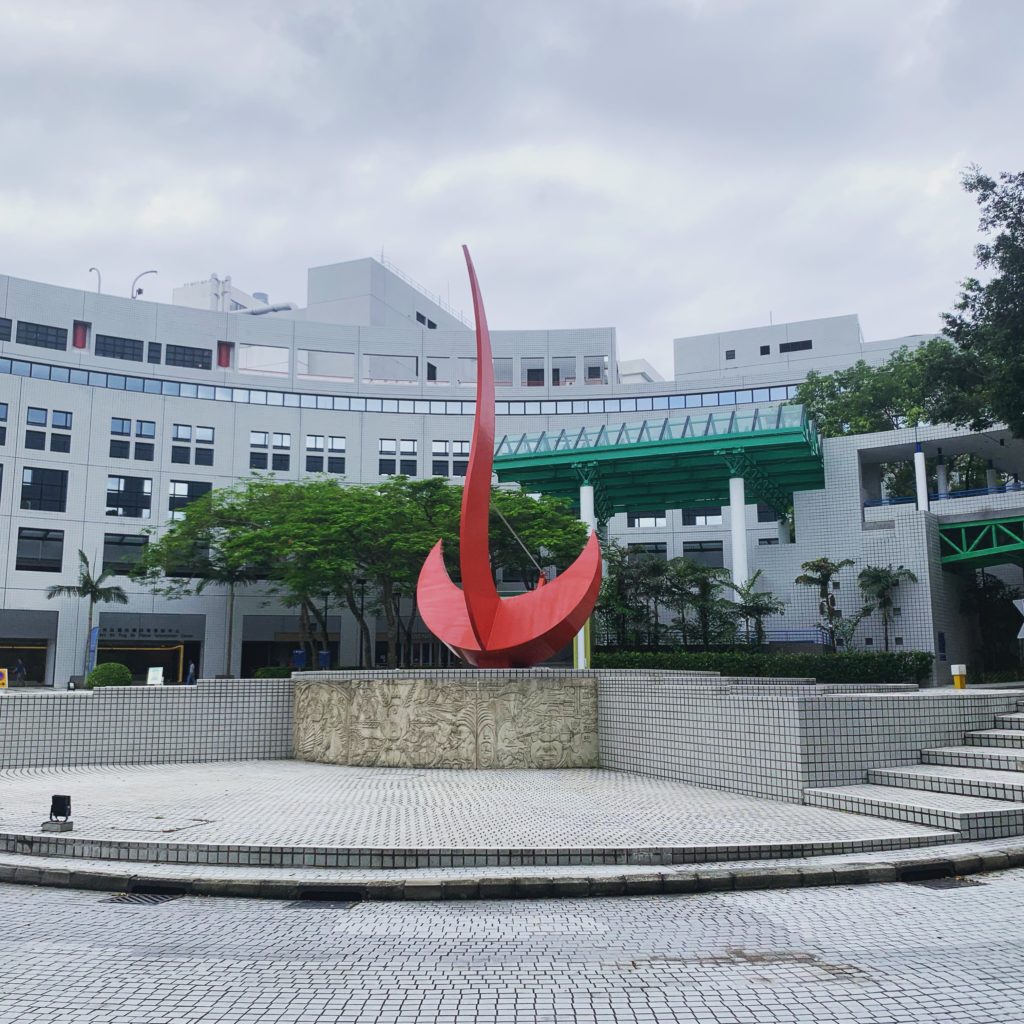
Dr. Charmaine Yung officially joins the faculty of the new Department of Ocean Science at The Hong Kong University of Science and Technology (HKUST) today. Ten years after graduating from HKUST, Dr. Yung returned to her alma mater after 10 years Stay tune for Postdoc, Research Assistant and Graduate student openings!
______________________________________________________________
